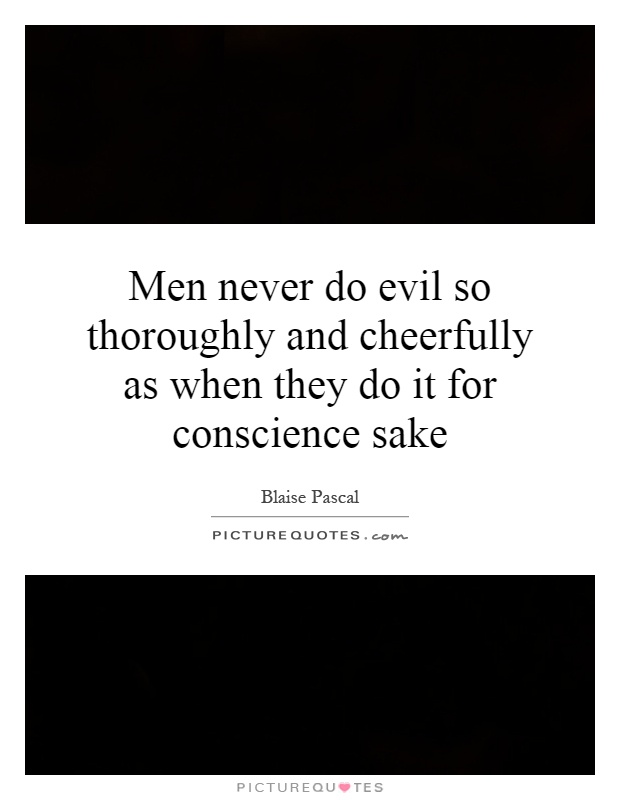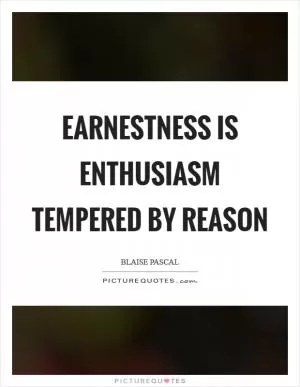Men never do evil so thoroughly and cheerfully as when they do it for conscience sake

Men never do evil so thoroughly and cheerfully as when they do it for conscience sake
Blaise Pascal, a French mathematician, physicist, and philosopher, is often quoted as saying, "Men never do evil so thoroughly and cheerfully as when they do it for conscience sake." This statement speaks to the idea that individuals are capable of committing heinous acts in the name of their beliefs or convictions, even if those actions are morally wrong.Pascal's quote suggests that when individuals believe they are acting in accordance with their conscience or moral code, they are more likely to carry out evil deeds with a sense of righteousness and conviction. This can be seen throughout history, where individuals and groups have committed atrocities in the name of religion, ideology, or personal beliefs. From religious crusades to political purges, the justification of evil actions in the name of conscience has been a recurring theme in human history.
One of the most famous examples of this phenomenon is the Spanish Inquisition, a series of brutal campaigns led by the Catholic Church to root out heresy and enforce religious orthodoxy. The inquisitors believed they were acting in accordance with their conscience and the will of God, and as a result, they carried out torture, persecution, and execution with a sense of righteousness and zeal. Similarly, during the Salem witch trials in colonial America, individuals accused of witchcraft were put to death based on the belief that they were acting in accordance with their conscience and the moral code of their community.
Pascal's quote also raises questions about the nature of conscience and morality. Is it possible for individuals to commit evil acts in the name of conscience without truly understanding the implications of their actions? Can a person's conscience be manipulated or distorted to justify immoral behavior? These are complex ethical questions that have been debated by philosophers and theologians for centuries.












 Friendship Quotes
Friendship Quotes Love Quotes
Love Quotes Life Quotes
Life Quotes Funny Quotes
Funny Quotes Motivational Quotes
Motivational Quotes Inspirational Quotes
Inspirational Quotes